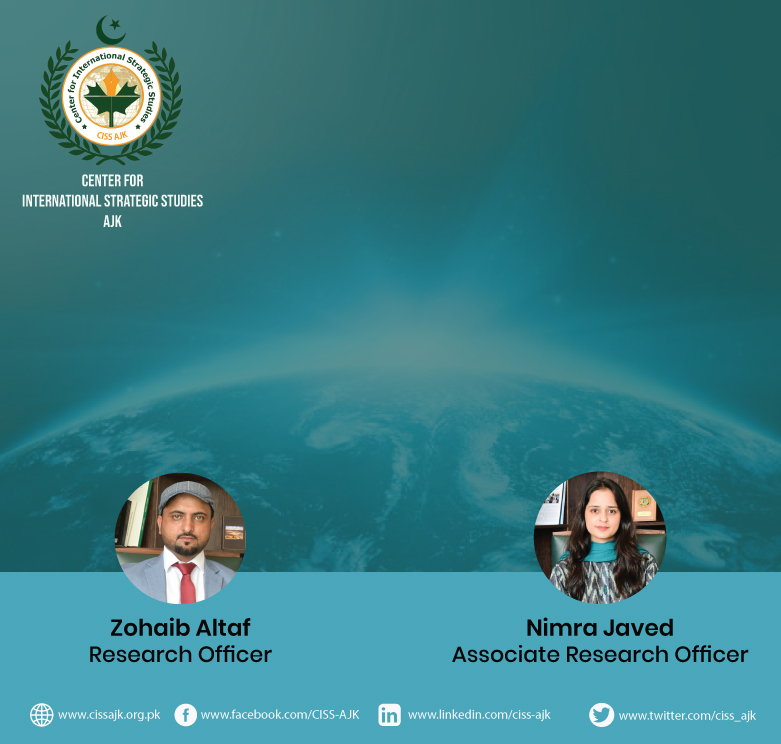729
Economic constraints, political instability, and a lack of technical infrastructure and expertise have long hindered Pakistan’s space efforts.
Pakistan has reached a pivotal moment in its journey toward scientific advancement with the unveiling of its inaugural National Space Policy. This significant development, coinciding with the global trend toward space privatization and the complexities of geopolitics, marks a bold step by Pakistan in the quest for space dominance. This strategy, necessitated by recent events such as the Ukraine conflict, highlights the strategic importance of satellite systems, making it not only necessary but exceedingly relevant.
Historically, Pakistan has encountered formidable challenges in its pursuit of space technology, with economic constraints being the most prominent. Space programs are expensive undertakings, and Pakistan has struggled to allocate sufficient funds to balance them with other pressing needs, such as poverty alleviation and infrastructure development. This persistent fiscal dilemma has been a significant impediment to establishing a robust space program.
Further exacerbating these issues is political instability. The fluctuation in government policy has largely been responsible for the lack of stable funding for long-term space projects. This inconsistency has frequently resulted in the shelving or postponement of critical space industry initiatives, hindering progress and growth.
The lack of adequate technical infrastructure and expertise has also posed a major challenge. Pakistan’s historical lag in research and development has impeded its ability to develop the advanced technology and skilled personnel necessary for a space program. This disparity in technical capability has been a substantial barrier in the space domain.
Another critical area is the STEM fields — science, technology, engineering, and mathematics — vital for developing competencies in space technology. However, these disciplines have not received adequate focus in Pakistan’s educational system. The underfunding of STEM has led to a shortage of qualified personnel, hindering the advancement of a space program. Moreover, Pakistan has been limited in its participation in international space technology collaborations, a significant setback since such partnerships are crucial for knowledge transfer and capability development.
However, the new National Space Policy adopts a multipronged approach to these longstanding challenges. It underscores the importance of private sector involvement, aiming to foster investment in the space program. This shift from traditional reliance on government funding could lead to enhanced financial and technical resources. The formation of the National Cyber Crime Investigation Agency (NCCIA) reflects an understanding of contemporary cybersecurity threats, particularly in relation to space technology. Similarly, the establishment of a dedicated Telecom Tribunal aims to streamline legal processes in the telecom industry, thereby facilitating the deployment of advanced technologies like 5G.
A key component of the policy is its openness to international collaboration. By welcoming multinational corporations to operate low-orbit communication satellites, Pakistan positions itself as an emerging space economy. This strategic move is vital for technology transfer and partnerships, crucial for the development of Pakistan’s space capabilities.
Improving the Space and Upper Atmosphere Research Commission’s (SUPARCO) capabilities necessitates a legislative framework for space travel aligned with international standards. Adherence to these norms is essential for establishing credibility and forging global alliances. To build on this strategy and overcome historical hurdles, Pakistan must focus on several key areas.
Promoting public-private collaborations is paramount to share costs and leverage the private sector’s technical expertise. Establishing robust global partnerships can also aid Pakistan in acquiring the necessary technical know-how and infrastructure for its nascent space program. These alliances could enhance Pakistan’s human capital in space technology by providing training and opportunities for Pakistani engineers and scientists to engage in international projects. Investment in STEM education at the primary and secondary levels is equally crucial. Elevating the quality of science and technology education in K-12 and higher education institutions, along with offering specialized courses in space technology and related fields, is necessary to develop the expertise required for a sustainable space program.
A suitable legislative framework is essential to support space activities and attract investment. This includes clear regulations for satellite launches, space travel, and space-based research and communication. In such an environment, innovation can thrive, and Pakistan’s space program can attract international partners. Pakistan’s strategic geopolitical location positions it well for participation in international space diplomacy and commerce. By engaging in international space treaties and conventions and leveraging its geographical and infrastructural advantages, Pakistan can emerge as a significant player on the global stage.
With limited resources, Pakistan must focus on specific niches where it can excel, such as space applications for agriculture and urban planning, remote sensing, and small satellites. These areas can yield significant returns on modest investments. This focus can lead to substantial advancements in the space sector, setting the stage for more ambitious endeavors in the future.
Fostering a “space culture” through public awareness, educational partnerships, and celebrating national space achievements can also play a crucial role. This approach will not only garner public support but also inspire the next generation of Pakistani scientists and engineers, ensuring the sustained growth and success of the country’s space endeavors.



